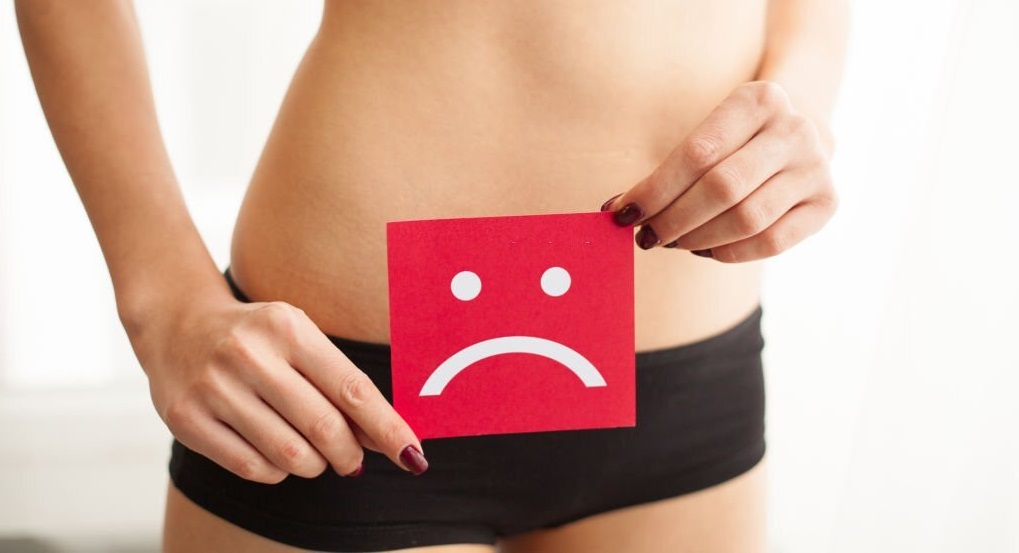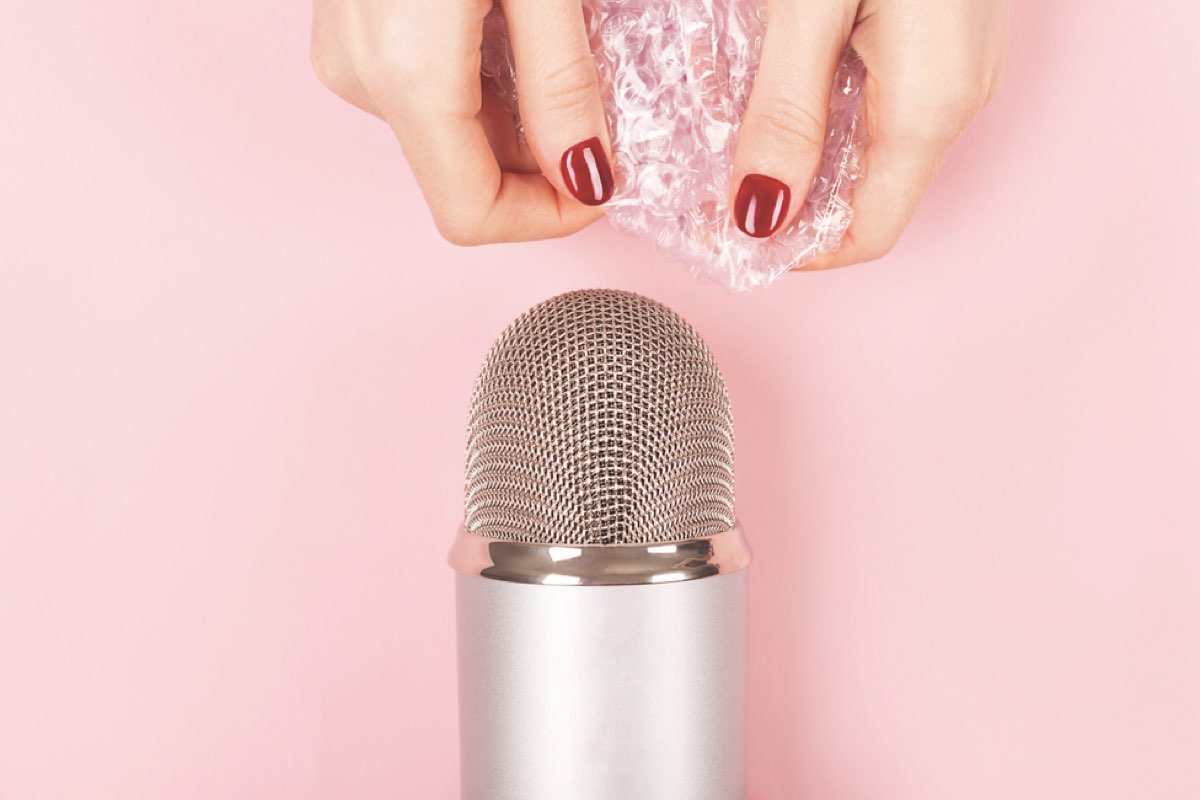First of all, let’s get one thing straight – vaginal dryness is a completely normal and common phenomenon that can affect women at any stage of their lives. Whether you’re postmenopausal or in your twenties, it’s not uncommon to experience periods of vaginal dryness. However, if you’ve suddenly noticed that you’re feeling dryer than usual down there, you may be wondering what’s causing it. In this article, we’ll explore the common causes of sudden vaginal dryness and discuss what you can do about it.
Common causes of sudden vaginal dryness
There are a number of reasons why you might suddenly experience vaginal dryness. For starters, changes in your hormone levels can affect the amount of natural lubrication your body produces. This is especially common during menopause, as your body’s estrogen levels decline. However, hormonal changes can also be caused by breastfeeding, taking birth control pills, or undergoing cancer treatment.
Another potential cause of sudden vaginal dryness is medication. Certain drugs, such as allergy medications, antidepressants, and chemotherapy drugs, can reduce vaginal lubrication. Even over the counter medications like antihistamines and decongestants can be culprits in this regard.
Lifestyle factors can also play a role in vaginal dryness. Using certain hygiene products or wearing tight or synthetic clothing can make you feel dryer down there. Additionally, smoking, excessive alcohol consumption, and drug use can all contribute to vaginal dryness.
Stress and anxiety can also lead to vaginal dryness. When you’re stressed, your body produces less estrogen, which can cause vaginal dryness. This can be especially true during times of high stress, such as during a major life change or a traumatic event.
Finally, certain medical conditions can cause vaginal dryness. These include autoimmune disorders, such as Sjogren’s syndrome, and certain skin conditions, such as lichen sclerosus. If you’re experiencing sudden vaginal dryness and are unsure of the cause, it’s important to speak with your healthcare provider to rule out any underlying medical conditions.
Also Check: Why You Are Never Too Young to Learn About the Menopause
The impact of hormonal changes on vaginal lubrication
We briefly touched on this earlier, but it bears repeating – a decrease in estrogen levels is one of the most common causes of vaginal dryness, especially during menopause. Estrogen helps keep the vaginal walls thick and healthy and stimulates the production of vaginal discharge, which in turn provides natural lubrication. When estrogen levels drop, you may experience vaginal thinning, dryness, and discomfort.
It’s important to note that hormonal changes can also affect vaginal lubrication during other stages of life, such as pregnancy and breastfeeding. During pregnancy, increased levels of progesterone can lead to decreased vaginal lubrication, while breastfeeding can cause a drop in estrogen levels, leading to similar symptoms as menopause. It’s important to talk to your healthcare provider if you experience any discomfort or changes in vaginal lubrication during these times.
Also Check: Health and Fitness Retreats to Hack Your Happy Hormones
How certain medications can affect vaginal moisture levels
As we mentioned earlier, some medications can play a role in vaginal dryness. Antidepressants, for example, can decrease sexual desire and reduce lubrication. Similarly, antihistamines and decongestants can dry out the mucous membranes in your body, including in your vagina.
Another medication that can affect vaginal moisture levels is hormonal birth control. Birth control pills, patches, and injections can alter hormone levels in the body, which can lead to vaginal dryness. It’s important to talk to your healthcare provider about any concerns you have regarding vaginal dryness and birth control options.
In addition to medications, certain lifestyle factors can also impact vaginal moisture levels. Smoking, for example, can reduce blood flow to the vagina and decrease lubrication. Stress and anxiety can also affect vaginal moisture levels, as they can interfere with the body’s natural lubrication process. Practising stress-reducing techniques, such as meditation or yoga, may help improve vaginal moisture levels. Here is an article that shows you how to easily incorporate daily meditation into your routine, which will help you with overall health and wellness.
Lifestyle factors that can contribute to vaginal dryness
Certain lifestyle choices can affect your vaginal moisture levels. Using scented soaps, perfumes or douches can irritate the vaginal area, making it feel dryer than usual. Wearing tight clothes made of synthetic material can promote sweating which can cause irritation, which can be drying to the skin around your vagina. Smoking, excessive alcohol consumption, and drug use can also take a toll on your vaginal health.
In addition to the above factors, certain medications can also contribute to vaginal dryness. Antihistamines, antidepressants, and some birth control pills can decrease vaginal lubrication, making sex uncomfortable or painful. If you are experiencing vaginal dryness, it is important to talk to your healthcare provider to determine the underlying cause and explore treatment options.
Understanding the link between stress and vaginal dryness
Stress can play an important role in your sexual health. When you’re under stress, your body produces cortisol which can interfere with the production of estrogen, leading to vaginal dryness. Additionally, if you’re feeling tense or anxious, you may be less likely to become aroused, making it more difficult to become lubricated.
It’s important to note that vaginal dryness can also be caused by other factors such as menopause, certain medications, and breastfeeding. However, managing stress levels through relaxation techniques such as meditation, yoga, or deep breathing exercises can help alleviate symptoms of vaginal dryness. Additionally, using water-based lubricants during sexual activity can also provide relief and increase comfort.
Tips for managing vaginal dryness and discomfort
If you’re experiencing sudden vaginal dryness, there are a few things you can do to manage the symptoms. For starters, try using a water-based lubricant during sexual activity. These products are designed to provide temporary relief from vaginal dryness and can make sex feel more comfortable. Additionally, consider using a vaginal moisturizer daily. These products can help keep the vaginal tissues healthy and can alleviate dryness and itching.
It’s also important to pay attention to what you wear. Choose loose and breathable clothing, especially when engaging in physical activities. Seek out gentle soaps and avoid harsh chemicals around the groin area. You may also want to talk to your doctor about changing medications if you suspect they might be contributing to your vaginal dryness.
Another way to manage vaginal dryness is to increase your water intake. Drinking plenty of water can help keep your body hydrated, including the vaginal tissues. You can also try incorporating foods that are high in omega-3 fatty acids, such as salmon and flaxseed, into your diet. These healthy fats can help improve vaginal lubrication.
If you’re experiencing persistent vaginal dryness, it’s important to talk to your healthcare provider. They can help determine the underlying cause and recommend appropriate treatment options. In some cases, hormone therapy may be necessary to alleviate symptoms.
The role of lubricants and moisturizers in treating vaginal dryness
As we touched on earlier, lubricants and moisturizers can be immensely helpful in managing vaginal dryness. When shopping for these products, look for water-based lubricants and vaginal moisturizers specifically designed to alleviate dryness. Avoid using products that contain fragrances or other irritants, which can further irritate the delicate skin around your vagina.
When to seek medical advice for persistent or severe vaginal dryness
If you’ve tried the above remedies and are still experiencing persistent or severe vaginal dryness, it may be time to seek medical advice. A healthcare professional can evaluate your symptoms and rule out underlying medical conditions that may be causing your dryness. Your doctor may recommend hormone therapy or prescribe medication to help manage your symptoms.
Preventing future episodes of sudden vaginal dryness
Preventative measures can be very effective in managing future episodes of vaginal dryness. For starters, maintain a healthy and balanced diet, especially one that is high in phytoestrogens, such as soy products. This can help keep your hormone levels in balance. Additionally, engaging in regular physical exercise can promote healthy blood flow to the vaginal area. Pay attention to your sexual health and talk to your partner about any concerns you may have. Finally, consider talking to your doctor about lubricants and other preventive measures.
In conclusion, experiencing sudden vaginal dryness can be a bit unnerving, but it’s important to remember that it’s normal and nothing to be ashamed of. By understanding the common causes of vaginal dryness and taking steps to manage your symptoms, you can alleviate discomfort and reclaim your sexual health. If you’re ever uncertain about your symptoms or need additional support, don’t hesitate to seek medical advice from a qualified healthcare professional.
















